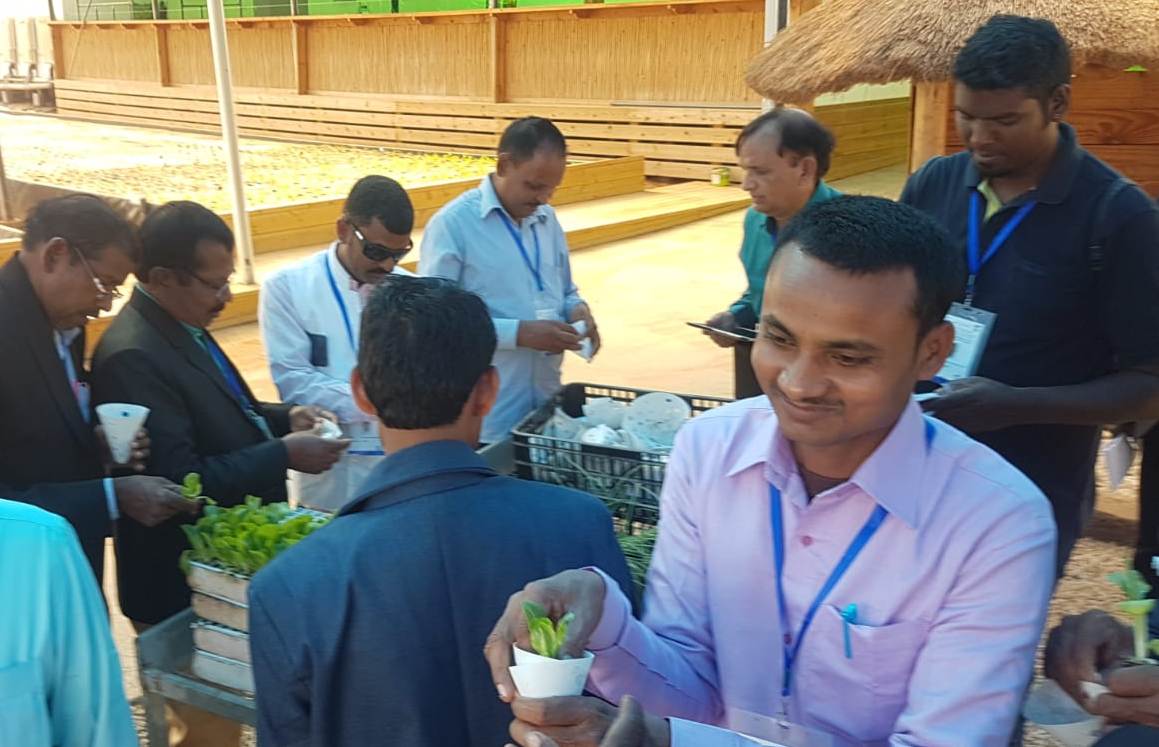

*All images by IPRD, Jharkhand
The high level delegation led by Mukesh Kumar, DC – Dumka and Shashi Ranjan, DC – Gumla, comprising of 21 farmers and 6 officials which is on the visit to Israel visited the facilities of Green 2000 and Tal-ya in Israel today to understand the technologies implemented in Greenhouses, Irrigation, Open-field crops, Processing crops and Aquaculture.
Green 2000 has engaged in recent years in the planning, set-up, consultation and sale to various projects in different spheres such as Greenhouses, Irrigation, Open-field crops, Processing crops, Cut flowers, Poultry and others in many parts of the world, and in its home base - Israel.
Green Ltd. activity centers primarily on the desert region of the Negev, Arava and Jordan River in Israel, working with the moshavim and kibbutzim (Israeli Private and Collective settlements) by the most advanced agricultural agro-techniques. The visit to Green 2000 would help our farmers learn the leading technologies in the greenhouses, open field crops and processing crops, which they can replicate in their homeland Jharkhand. Green Ltd. is specialized in the export of seeds and their adaptation to local climate conditions to any part of the world.
The delegation also visited Tal-ya to muster knowledge about innovative methods of irrigation. Tal-Ya Agriculture Solutions manufactures a revolutionary product which presents a dramatic opportunity for the agriculture industry worldwide. Tal-Ya manufactures a unique, patented polypropelyne tray that covers the plant’s root system, directing water and fertilizer directly to the root, while protecting the earth around the root from weeds and extreme temperatures.
This technology can be highly useful for the farmers of Jharkhand as it can help them dramatically increasing crop yield, and enabling farmers to harvest more from each tree, faster. The use of Tal-Ya trays has been proven in research and in the field to bring a savings of at least 50% in water, 50% in fertilizer use, and is an alternative to herbicide (weed-killer). Once implemented in Jharkhand, the technology may be a boon to the farmers of the state and can increase the crop yield while controlling the fertilizer use.
The second day of the visit was very meaningful as it gave the delegation technological insights pertaining to farming, irrigation and aquaculture which they can easily implement in Jharkhand through Israeli collaboration and technology transfer.